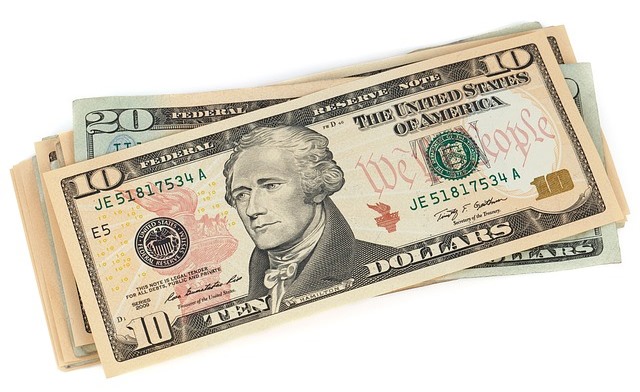Top 10 Things You Need To Know Before You Get a Personal Loan
Unlike a car loan or a mortgage, a personal loan is often flexible, offering many options to the consumer. You can use the money to buy a car or perhaps even a house, but you can also use the funds from personal loans to cover your cell phone bill or even go on a shopping spree.
Personal loans can also be easier to obtain than other types of loans – depending on the lender. But sometimes the easiest loan to obtain is not the best loan for your financial health. This is just one of the many important aspects to consider before obtaining a personal loan.
What Credit Score Is Required?
Many personal loans are obtained solely on the basis of your credit profile, rather than by submitting a complex business plan or by offering collateral such as a house or a car. Such loans are also known as signature loans because the only real guarantee of payment is your signature on the loan agreement papers.
Your credit score weighs heavily on whether you are approved for conventional personal loans. Some lenders, such as credit unions and companies like LoanNow, look at your entire credit profile rather than just your credit score, which may make it easier or more difficult to be approved.
What Is the Interest Rate and APR?
Depending on your credit profile and your lender, the interest rate and annual percentage rate (APR) for personal loans can vary widely. Some loans, such as those from credit unions or banks, charge very low interest rates for customers with good or excellent credit. Conventional finance companies charge interest rates that are higher than credit cards, especially to customers with poor credit.
Conventional personal loans have the advantage of being installment based, rather than on revolving credit. Payments made to installment loans gradually reduce the principle on the loan until the loan is repaid in full. In contrast, if you only make the minimum payment on a credit card (which is a type of revolving credit), you could potentially make payments for years without actually reducing the total amount that you owe.
Some signature loans, primarily payday loans, do not run conventional credit checks at all. Instead, payday lenders compensate for fairly lax credit underwriting standards by charging outrageously high interest rates that range well into three figures. While payday loans are marketed as short-term quick fixes, these loans can get very difficult to pay off in full, and can multiply quickly until you owe more than what you originally borrowed. According to a study published by the CFPB, the average payday borrower is on the cycle for 5 months out of a year, with an average APR of 339%.
What Is the Loan Repayment Period?
Repayment periods for conventional loans usually range from several months to several years. Payday loans have repayment periods that are measured in weeks or days, because they are tied to your pay periods. Repayment periods for pawn shops vary, but are closer to those for payday loans rather than for those for conventional lenders.
Is Collateral Required?
Many personal loans do not require collateral. But “borrowing” from a pawn shop requires you to relinquish your personal property in exchange for the loan. In addition, some payday lenders or title lenders require you to give up the title to your car or your home in exchange for the loan. Even though they possess this collateral, you actually still get to remain in your house or keep possession of your car. But if you fall behind in your payments, your house or car are in jeopardy of being seized to repay your loan.
Is There a Pre-Payment Penalty?
Suppose Aunt Gertrude leaves you a sizeable inheritance and you decide you want to use at least some of the money to repay your debts. Common sense would tell you that this was the appropriate and financially responsible thing to do. But many lenders, especially payday lenders, impose steep pre-payment penalties if you pay the loan in full before it’s due date.
In contrast, responsible lenders, including many banks and credit unions, or finance companies like LoanNow, allow you to prepay your loan without penalty. In some cases, you may even receive a discount or better interest rates on future loans by making pre-payments on a personal loan.
Are There Limits on How You Can Use the Money?
One major advantage of obtaining a personal loan is that in most cases, there are few if any limits on how you can use the money. The main concern for lenders with personal loans is how or whether you will pay the money back rather than how you intend to spend it.
But some peer-to-peer lenders may require you to spend the money you obtain only for the purposes you stated in your application or appeal. If you aren’t sure about possible restrictions on spending the money from your loan, ask ahead of time.
What Type of Lender Is Providing the Loan?
Personal loans are available from a wide range of lenders. Banks, credit unions, pawn shops, peer-to-peer lenders, payday lenders and finance companies represent the most common legal means of obtaining personal loans in the United States.
Banks and credit unions typically charge lower interest rates, but require strict lending standards and usually require a good credit score, although credit unions are somewhat more lenient in granting credit.
Peer-to-peer lenders can be more lenient than conventional banks and credit unions, but you must sacrifice a great deal of privacy to appeal to lenders you do not know and may realistically never even meet.
Pawn shops have no credit checks, but interest rates are usually very high with these types of lenders. Additionally, repayment periods are shorter, often only 60 days or less, and you risk losing your items if you fail to pay within their terms.
Payday lenders have fairly relaxed lending standards, but crushing interest rates and very short repayment periods.
Finance companies such as LoanNow charge higher interest rates than banks and credit unions, but far lower than pawn shops and payday lenders. Finance companies also set repayment periods in terms of months or years, much like credit unions and banks, rather than in days or weeks, like payday lenders and pawn shops.
Do You Need a Co-Signer?
Based on your credit score, a bank or credit union may require a co-signer before approving you for a loan. This is especially true if your credit is marginal or poor and if you are not providing collateral.
Peer-to-peer lenders usually do not require co-signers because they usually set minimum credit scores needed for all potential borrowers. Payday lenders typically do not require co-signers, even if your credit is poor.
What If You Can’t Pay on Time?
Contact your lender as soon as you realize that you won’t be able to make a scheduled payment. You may be able to reschedule or delay a payment. Most credible lenders will be willing to work with you.
But use caution when requesting a payment extension. In many cases, payday lenders “generously” allow borrowers who cannot afford to pay their loans in full to extend the repayment period by making only a small partial payment. But the catch is that these payments function much like making minimum payments on credit cards, except the effect is far worse because of the sky-high interest rates and APR charged by payday lenders. This “generous” payment extension is really just their way of trapping you in an endless cycle of making minimal payments while only getting further in debt.
Some lenders are less likely to help you if you can’t make a monthly payment. Pawn shops have the ruthless reputation of keeping property when someone fails to repay the amount of the loan (plus interest) by the original due date.
Will the Loan Require a “Hard” Credit Check?
Some lenders will require a “hard” credit check before they can qualify you for a loan. Each of these credit check can lower your credit score by several points. But if you make several applications for the same type of loan within a short period of time, credit reporting bureaus usually count that as a single loan inquiry, which reduces the impact on your credit score.
So if you are planning to obtain a loan from a conventional lender such as a bank, credit union or stand-alone lender such as LoanNow, try to complete all your applications within a period of a couple weeks.
The Bottom Line
At LoanNow, we make it our business to help people with poor credit get back on track. We pride ourselves on having an A+ rating with the Better Business Bureau, and although we can’t guarantee we will approve your application, we can promise we will do everything we can to help you qualify for your loan and improve your credit. When making your decision on who you will trust your business with, consider LoanNow for all your lending needs.


